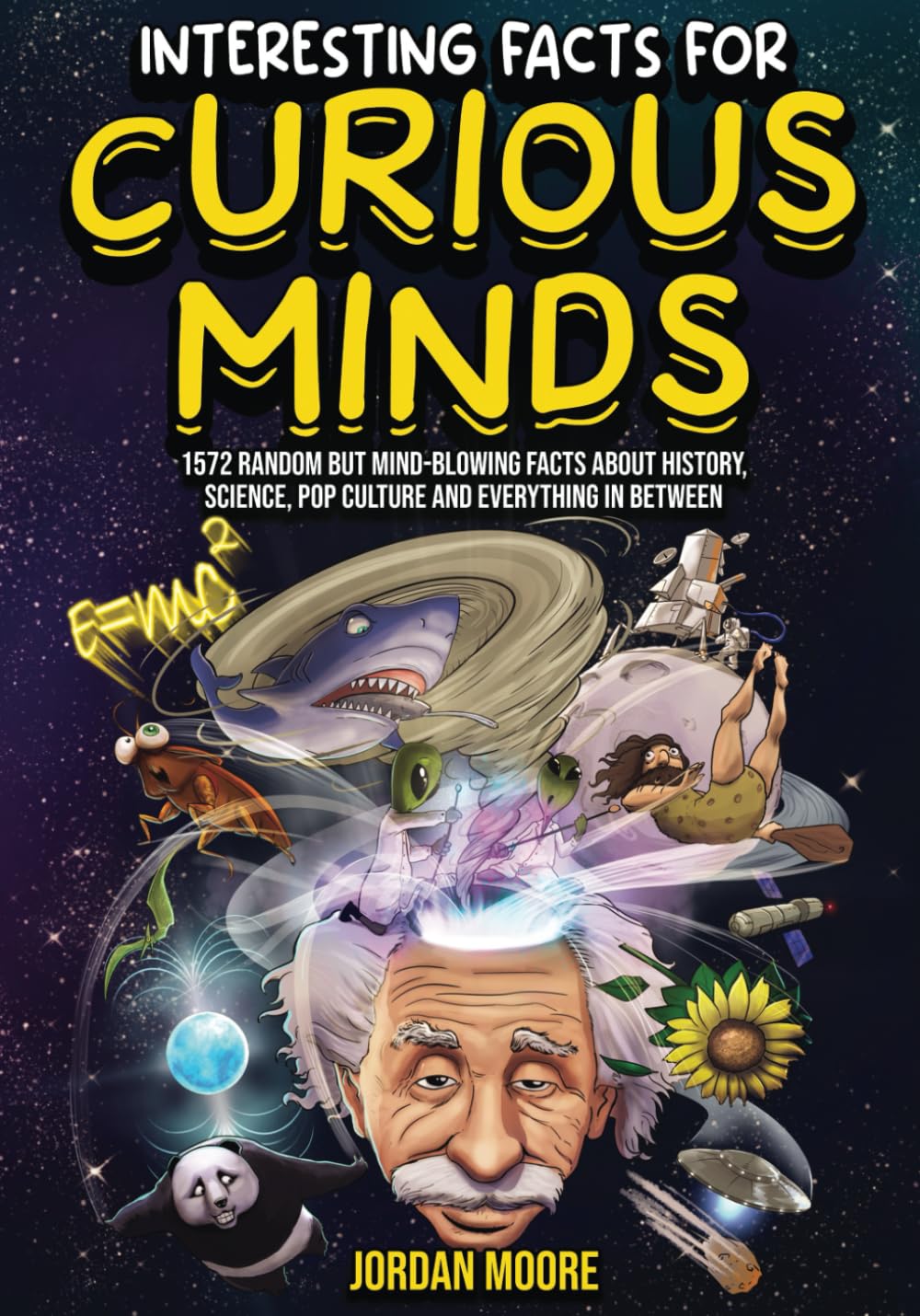
Interesting Facts For Curious Minds: 1572 Random But Mind-Blowing Facts About History, Science, Pop Culture And Everything In Between
Gas, Solid, And Liquid
byGas, solid, and liquid are the three primary states of matter that are central to understanding water’s behavior across various environments. Water, covering 71% of Earth’s surface, exists in these three states in natural environments, with over 96% of it residing in the oceans. Together with the water contained underground and in the atmosphere, Earth’s total water would cover an astonishing 332,500,000 cubic miles. These vast quantities are in constant motion, cycling through different forms as part of the water cycle. For example, when a massive iceberg collided with the Titanic in 1912, it was a remnant of the ice that originated from Greenland, potentially thousands of years old. This event serves as a reminder of how water’s solid form has played a crucial role in shaping history.
Water’s solid form, such as ice, snow, and frost, exists in various states that impact both the environment and human activities. Ice sculpting, for instance, is a popular hobby in colder climates, with artists using tools ranging from hammers to chainsaws to create intricate designs. Water in solid form also appears in other places like glaciers and polar regions, affecting local ecosystems. Beyond its role in art and nature, water in solid form plays an essential role in regulating the Earth’s temperature, as ice caps and glaciers reflect sunlight, keeping the planet cooler. On the flip side, water also exists as a gas, and this gaseous form is fundamental to many processes, such as weather patterns and the water cycle, including evaporation and condensation.
In its liquid form, water is a powerful force, influencing life and industry across the globe. Its cohesive and adhesive properties, where water molecules stick together and to other substances, are crucial in biological and ecological systems. For example, water’s high cohesion allows it to move through plants, providing essential nutrients, while its adhesive properties allow it to interact with the soil. Water in liquid form also plays a pivotal role in everyday human activities, from drinking to industrial use, such as in the cooling of machinery and in the production of energy. In this form, water is not only vital for human survival but also crucial in numerous manufacturing and agricultural processes. The importance of water as a liquid cannot be understated, as it is integral to both life and the planet’s climate systems.
The Earth’s water is constantly moving through the water cycle, undergoing phases of evaporation, condensation, precipitation, and runoff. This movement ensures that water is continuously recycled, supporting ecosystems and human civilizations alike. The concept of a triple point is another fascinating characteristic of water, where it can simultaneously exist as a gas, liquid, and solid. This occurs at a specific temperature and pressure, precisely 32.018°F and 611.657 pascals, demonstrating the unique versatility of water under specific conditions. This triple point is a critical point in thermodynamics and allows scientists to study the physical properties of water and other substances under varying environmental conditions.
Water is also subject to human intervention, as seen in the practice of desalination, where saline water is treated to remove salt, making it suitable for drinking or agricultural use. This process, although incredibly useful, is energy-intensive, making it less sustainable for widespread use in areas that face water scarcity. Desalination highlights the ongoing battle to provide clean water in regions where natural freshwater resources are limited. The fluctuating size of bodies of water, such as the Great Salt Lake, also reflects how climate change, human activity, and natural cycles affect water levels and availability. In the 1980s, the Great Salt Lake spanned over 3,300 square miles, but by 2021, it reached a record low of 950 square miles, demonstrating the delicate balance of water levels in closed basins.
Water’s role in shaping human civilization extends beyond the environmental impacts. It is embedded in cultural and religious practices, such as in the Ganges River, one of the most polluted bodies of water in the world. Despite its religious significance in Hinduism, where human ashes are discarded, the river faces severe pollution from industrial runoff and human activities. Similarly, water in the Persian Gulf has been a subject of political conflict, with the Arabic-speaking nations in the region referring to it as the “Arabian Gulf,” while Iran continues to insist on the traditional name, “Persian Gulf.” These examples show that water is not just a natural resource but also a cultural and political symbol, influencing international relations and local practices.
The fascinating behavior of water, in its solid, liquid, and gaseous states, showcases its complexity and importance in both natural and human systems. Whether it is found in glaciers, lakes, oceans, or the atmosphere, water is constantly moving and changing, shaping the world around us. From supporting life on Earth to driving weather systems and industrial processes, water remains one of the most critical elements in sustaining the planet. Understanding its properties and how it functions in different states helps us appreciate its role in maintaining the delicate balance of life on Earth. It also underlines the importance of protecting this vital resource for future generations, as water continues to be essential in the face of climate change and growing human populations.

